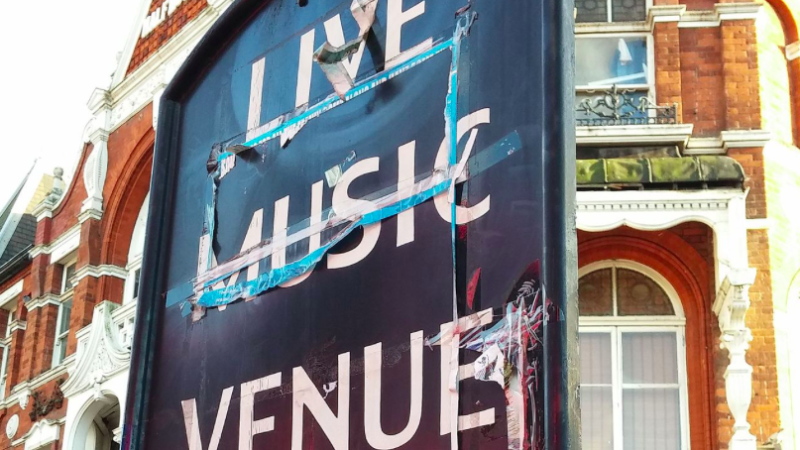In the last ten years, the UK has lost half of its clubs and 10,000 of its pubs.

Our pubs, clubs and venues are under threat across the UK. These institutions central to our culture need protection.
I feel like I practically grew up in a place called ‘Le Pub’ in Newport, Wales. The venue crossed two floors – it was the perfect combination of a bustling live music venue and a cosy, homely basement bar complete with jukebox, pool table and photos of inspirational musicians from different generations.
It was a place I discovered new bands and nurtured my passion for watching live music. But Le Pub ran into trouble in 2014 after nearby residents complained about noise pollution.
It’s an issue that’s plaguing small music venues across the UK. Between 2005 and 2015, the number of clubs in the UK has halved between 2005 and 2015 – from 3,144 down to 1,733. The UK has lost 21,000 pubs since 1980 and half of these closures have taken place since 2006.
Le Pub had existed for 22 years when complaints started to ramp up. As hotels, houses and apartment blocks proliferate in city centres, the new residents, understandably, complain about noise. But it’s the developers, not the venues, who should take the blame for the lack of soundproofing.
The Good Ship in Kilburn too was forced to shut down after having its hours cut last year. And it’s not always noise complaints and reduced hours that threaten small music venues – some have fallen victim to Crossrail construction, with at least four bars and two nightclubs already flattened or facing impending demolition.
Music and comedy venues are central to our communities, a place for people to discover and develop their talents. Without them, we put our culture and music industry at risk. If young people have nowhere close to home to dabble in music and comedy, how can they can they start to explore their creativity?
How can a career start if there’s nowhere to incubate and nourish the initial interest that can blossom into a passion? Arts subjects are already being pushed out of schools – we can’t let them be shut out of our communities as well.
And what about those of us who treasure the time we spend in these cultural institutions, who value the time we spend with family and friends? For some it’s also a safe space when the rest of the world might not be so friendly.
Historic gay pub the Black Cap in Camden was shut down in 2015, just one week after being named an ‘asset of community value’ by the council. Two years later, it appears to be simply sitting empty, with no explanation from the developers.
But there’s hope too. In Cardiff, campaigners have banded together to protect the music venues along Womanby Street, an action prompted by the threat of a Wetherspoons Hotel opening above a bar.
They’re demanding the street be recognised as an area of cultural significance and lobbying the Welsh Assembly to adopt the ‘agent of change’ principle in planning permission. It would ensure developers of any new commercial or residential premises have to take responsibility for solutions to noise from nearby pre-existing businesses.
The Music Venue Trust also champions the importance of small music venues and similarly campaigns to shake up funding and rules so venues can survive in a rapidly changing world. As for Le Pub, it’s now part of a community asset scheme and despite having to move venues, it retains all of the charm and community of its first 22 years.
Our music venues can be saved if we value the benefits they bring to our communities and work together to protect them. But let’s tackle the underlying causes too – residents shouldn’t be losing sleep and communities shouldn’t be losing their cultural hubs because of poorly planned developments.
Amelia Womack is deputy leader of the Green Party. She tweets here.




One Response to “Our clubs and venues are shutting at an alarming rate — they need protection from developers”
Dave Roberts
A silly article. Most pubs have closed because they don’t have the trade. It’s expensive to drink in them and tastes have changed. The demography of the UK is changing with many new immigrant groups and their descendants now Muslims who don’t drink alcohol.
The country pub has been hit by the severity of the drink drive laws and for the rest there were simply too many pubs for a changing world. I can remember when there were nearly two dozen pubs on and just off Cable Street in East London. There isn’t one now because the trade declined. Thirty years ago on a building site of mine in the East End myself and two guys working for me, all East Enders, were able to list thirty pubs that had closed between Aldgate and the river Lea which is the boundary of Tower Hamlets which is what we call the East End. It’s double that now.